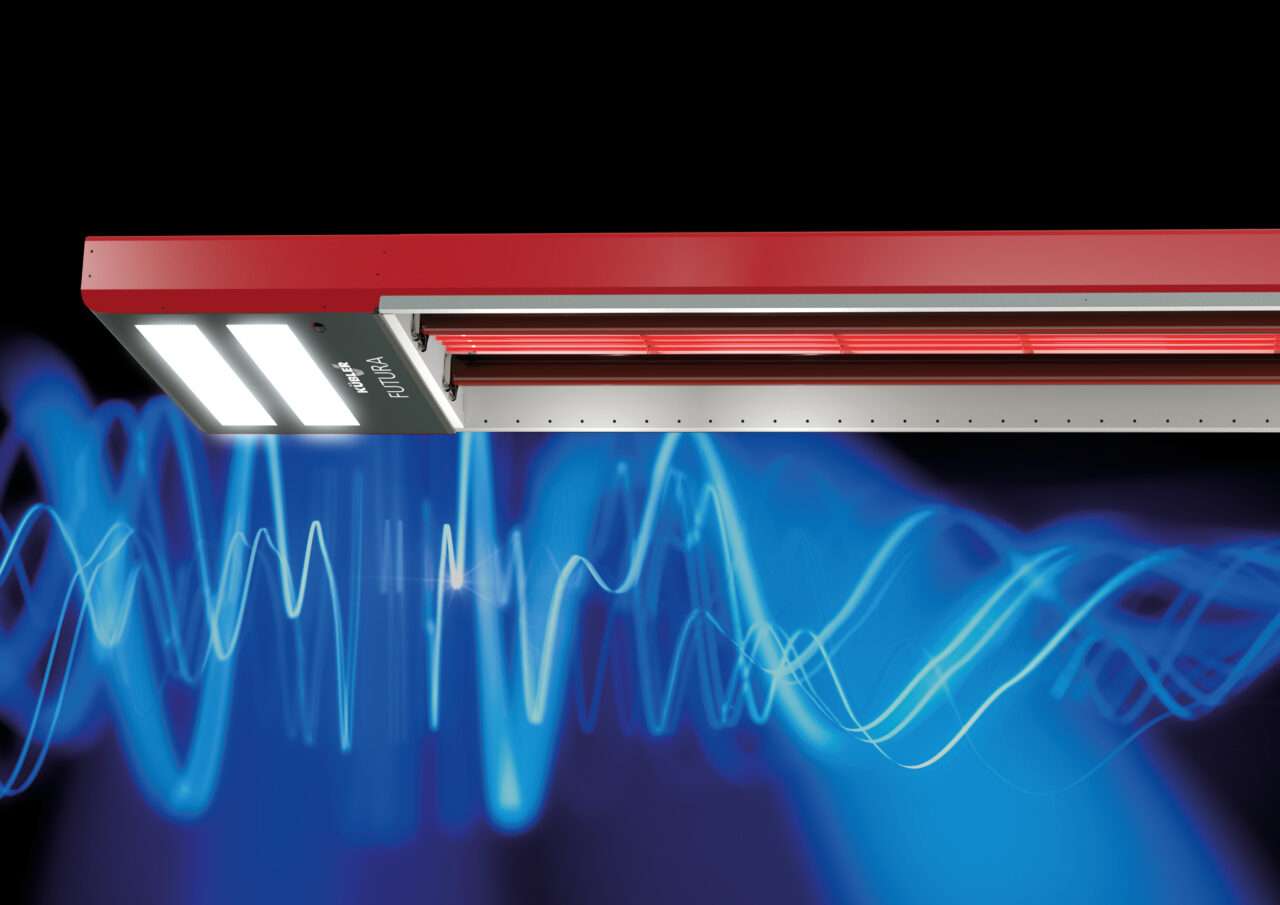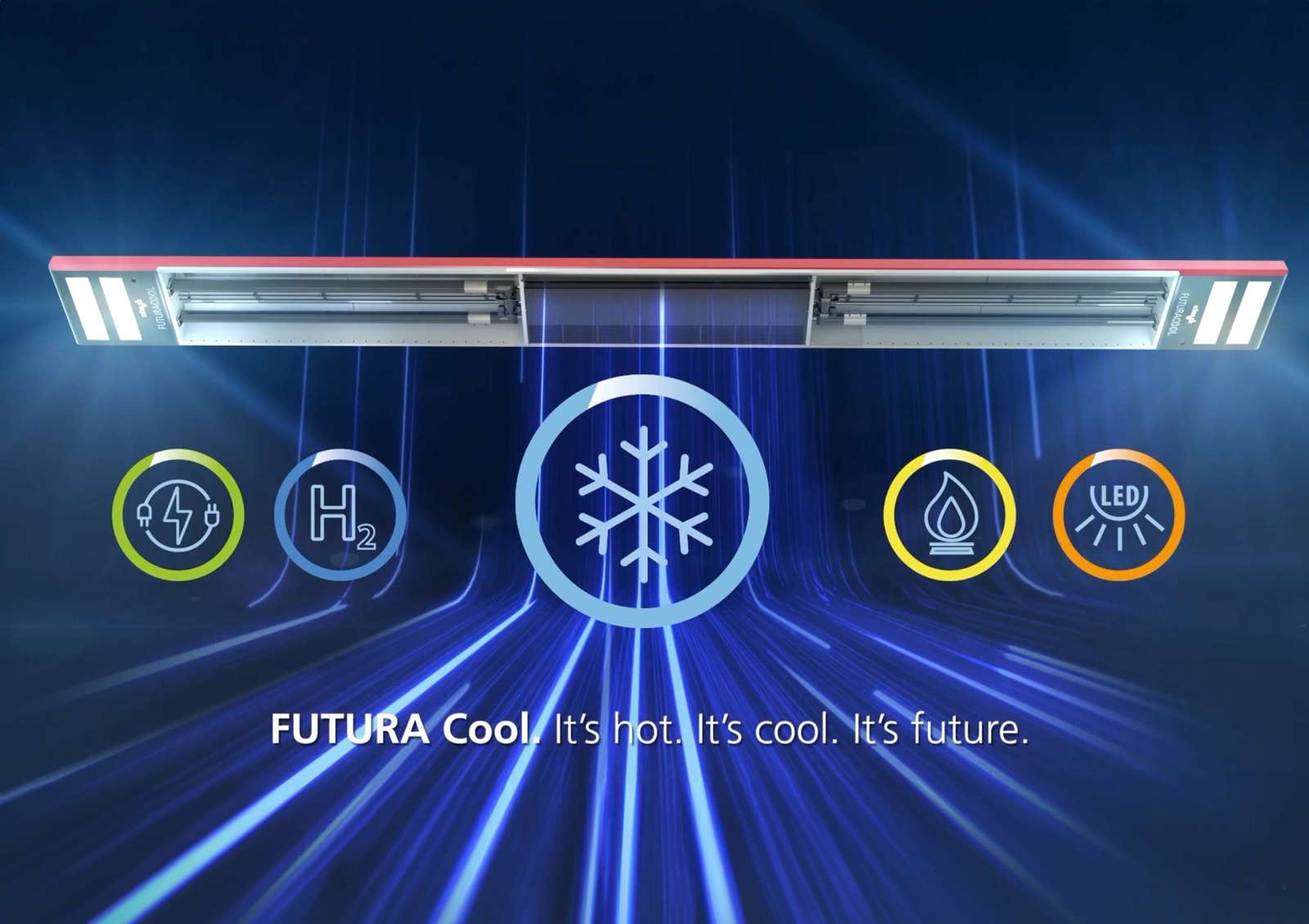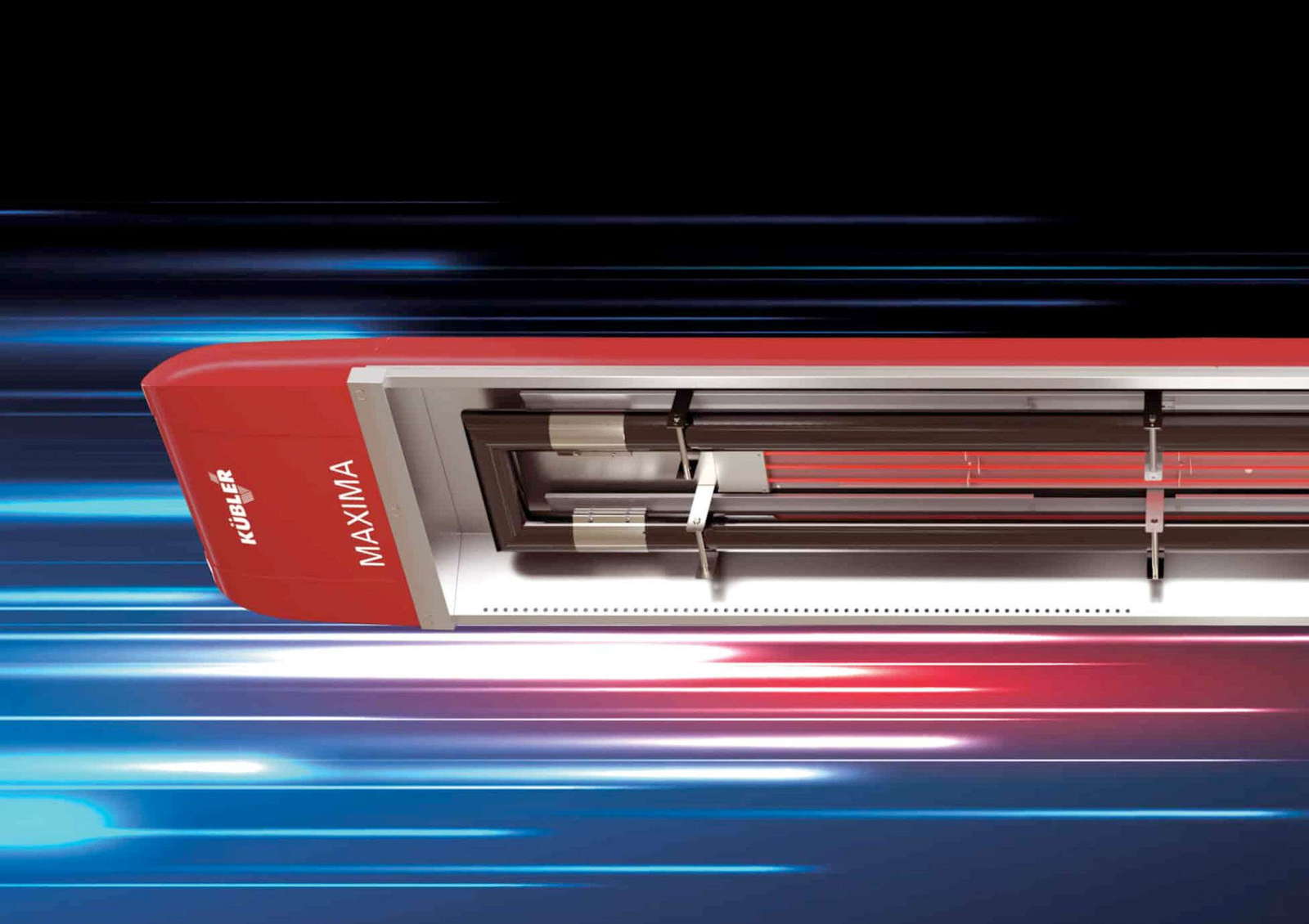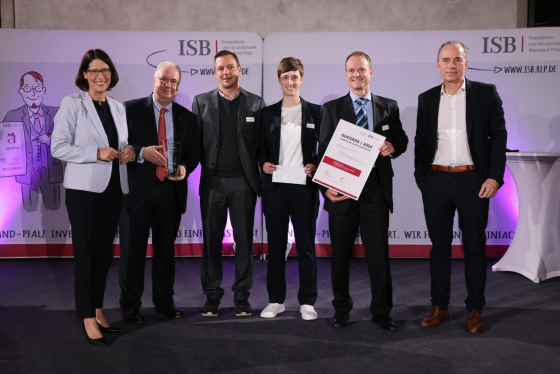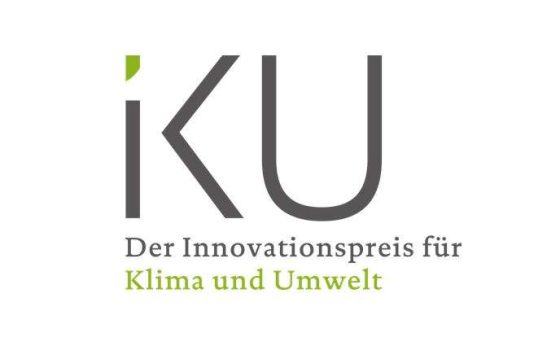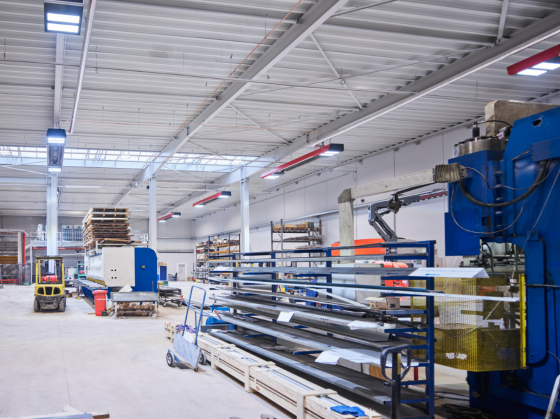How to find the ideal hall heating

First of all, realize that industrial and commercial buildings have different heating requirements than homes or offices. Sounds trivial? But it's not. In fact, many planners still make the mistake of using a similar heating strategy to that used for multi-storey buildings. The problem: warm air rises upwards. With low ceiling heights, such as in offices or apartments, this is not relevant. In halls, on the other hand, the warm air collects virtually uselessly at great heights under the hall roof.
Until it is pleasantly warm on the floor, operators have to channel a lot of heating energy into the hall and use systems that direct air flows back down again. This is basically a waste of money, as heat in large halls is usually only required at a person height of around two meters, but not at higher levels. It is therefore usually sufficient to heat 20 percent of the room volume. Even then, employees are pleasantly warm and can develop their full productivity.
Find the right technology for your hall heating
Now the question arises as to which technology should be used to optimize the approximately 20 percent of your Targeted heating of the hall. If you look around the market, you'll notice: There are centralized and decentralized Heating systems. Central systems include industrial underfloor heating systems, centrally supplied, water-based air heaters and hot water radiant ceiling panels. They work with a central energy generator and a pipe system that transports hot water to the desired location.
Decentralized heating systems, on the other hand, include infrared radiators that can be installed under the ceiling. They are gas-powered and work with electromagnetic waves. As soon as the waves hit a solid object, such as a person or the room frame, the energy is converted into heat. The highlight: infrared radiators do not heat the air! This means that only the occupied and usage areas are heated.
At the same time, hall operators enjoy flexibility. They divide the hall into different heating zones using several infrared radiators - and provide employees in order picking, for example, with more heat than colleagues in production, where Machines already provide sufficient basic heat provide. Flexibility that increases employee satisfaction. These decentralized solutions also make it easier to adapt the system when the hall is converted compared to a centralized system.
Another advantage of the Infrared technologyIt is quick to react. Operators switch the heating on and off in a similar way to a light. As the energy does not take a detour via the air, heat is available virtually at the touch of a button. And in the age of automation, you don't even need to switch it on and off manually. This task is performed by intelligent control technology, which adapts the heating output to the changing conditions. Users thus reduce energy costs by up to 70 percent, so that the investment in the heating system pays for itself in a short time.
Get an overview of the requirements of your hall
In order for hall heating systems to develop their full potential, they should be adapted to your hall like a tailor-made suit. However, this adaptation by an external service provider will only be successful if you have a clear picture of your hall building, the hall usage and your requirements for the heating in advance. Pay particular attention to the factors that could influence the temperature. These questions can help you:
- What are the dimensions of your hall?
- What is the condition of the building?
- How is the hall used?
- Are there different areas and times of use?
- What about the gate opening times?
- How has heating been used so far - is there any consumption data?
- What goals and requirements should the new heating system meet?
The answers to these questions form a foundation on which your heating partner can build.
Think through different energy sources for your hall heating system
In times of climate change, the German government's targets are ambitious: Germany is to be climate-neutral by 2045 at the latest. The economy is making corresponding efforts, CO2-emissions. Many companies are saying goodbye to heating oil, which will be banned for new buildings from 2026 anyway, and are instead focusing on renewable energies and technologies such as solar thermal energy or electric heat pumps.
If you decide to go down this route, however, you should be aware that you are committing to a central heating system. And for this you need a hydraulic distribution system. In addition, such a system is often associated with two to four times higher investment costs and is comparatively slow to react, meaning that in many cases the heat supply cannot be adapted quickly enough to dynamic requirements.
Infrared heaters work with natural gas. However, compared to other fossil fuels, this gas is considered the CO2-It is also the least polluting of the traditional fuels, as it has the lowest primary energy factor of all. In addition, natural gas is becoming increasingly green due to the upcoming feed-in of regeneratively produced hydrogen (power-to-gas technology) and is considered one of the most sustainable energy sources, especially in conjunction with the excellently developed gas network in Germany.
Now you may be asking yourself: The new Building Energy Act (GEG) stipulates that in future I may only use renewable energies for heating. Aren't infrared radiators prohibited? No! According to the GEG, you are no longer bound to renewable energy sources if the hall is over four meters high. While central heating systems are obliged to use renewable energy in order to meet the GEG requirements, these can also be implemented with natural gas using the most efficient infrared hall heating technology. This means you don't have to worry about compliance.
Take a close look at suppliers of hall heating systems
To ensure that you find an efficient and future-proof hall heating system, you should check the competence of providers in advance. The following questions can be used as a guide:
- What references does the provider have?
- Is there a nationwide service (if you have or would like to set up several locations)?
- Can you be sure that you will still receive spare parts and service in 15 years' time?
- Does the provider have a development department that is innovative and develops products according to modern standards?
- Do the employees appear competent?
- Is the system flexible? Can it be easily adapted to changes in legislation and conversions?
It is also advisable to focus not only on the price of the hall heating system, but also on the total cost of ownership (TCO) - i.e. the operating costs over the entire life cycle. Only with this value can you calculate whether it is a worthwhile investment.
-
While Germany is discussing the energy transition, KÜBLER GmbH from Ludwigshafen has already delivered. FUTURA is the name of the latest invention from the experts for hall heating systems - and it works regardless of the energy source: the infrared heating system for halls uses hydrogen, electricity, gas or a mix of these. It can process green and fossil fuels highly efficiently, thus building a bridge to the carbon-free era. This is one of the reasons why the Investitions- und Strukturbank Rheinland-Pfalz (ISB) and the Ministry of Economic Affairs, Transport, Agriculture and Viticulture awarded KÜBLER the special prize "Innovative Technologies for Climate Protection" at the SUCCESS Innovation Award on Tuesday evening.
-
The Federal Ministry for Economic Affairs and Climate Protection has been honoring the commitment of industry and research to climate and environmental protection for many years with the IKU - the German Innovation Award for Climate and the Environment. The 21 nominees include many big names as well as a medium-sized company: KÜBLER GmbH from Ludwigshafen. It specializes in the development of energy-saving hall heating systems and entered the competition with HeizWerk, a smart solution package for industry. Behind this is nothing less than a clever concept for energy-efficient refurbishment in production, storage and other hall buildings without the need for capital expenditure.
-
The metalworking company "Die Kanter & und Schlosser" heats its new building variably with electricity, hydrogen or gas thanks to the world innovation from KÜBLER in Ludwigshafen.
-
In 2021, the new CO2-tax came into force. It is intended to help Germany achieve its climate protection targets. Read on to find out what this means for your company in terms of costs and what you should do now!
